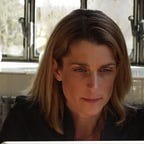How young is too young to learn about global issues?
When I see the passion shown by children as young as five years old in transforming the world for the better by recycling or raising money for charity, I think about what age parents can begin to communicate to their children global problems and challenges. Should we keep silent until middle school about climate change, inequality, hunger, food insecurity, water shortage, or child labor, or implement those issues as soon as they understand the subject?
Empowerment and reassurance are two fundamental concepts in raising children. We want to empower our children to stand up for themselves, believe in their abilities, and make their own decisions. And we want to reassure them about a safe and happy life. I believe that a non-frightening explanation of what poverty means around the world, or the impacts of climate change, together with ideas about how to help solve these challenges is empowering and reassuring. It’s empowering because we tell them that their support is needed and valued. It’s reassuring because we are making suggestions on how to help.
The world changes at a tremendous pace and global challenges concern us all. Children should learn about them as early as they can process the information so that they can contribute to their improvement.
We all want to leave our kids a better world, but that means we will have to involve them in how to face global challenges, as they are the future consumers, leaders, decision- makers, and inheritors of the earth.
No child is too young to make a difference! Why not give them that confidence early on? We owe it to our children to raise them to become global citizens who are aware of the challenges and the interrelations between everything that is happening in the world.
A challenge faced by some of us is going to affect each one of us. Together we will all have to find ways to end poverty, injustice, and climate change.
In 2015 the United Nation’s Sustainable Development Goals (SDGs) were released. These were coined the “Global Goals” and are today a blueprint to end global poverty, protect the planet, and make sure all people live in peace and prosperity by 2030. With only ten years left, the “Decade of Action” has started, and it depends on every human being — young and old, rich and poor — to help save the world.
I encourage you to have many meaningful conversations with your children and decide together how your family can help fulfill the Global Goals. This month, Whyzz.com, is hosting a seventeen-day campaign on the SDGs. Each day, we will explain one goal and provide ideas and solutions on what your kids can do to help. It’s perfect for your young future world -changers. Follow us on social media to join in.
